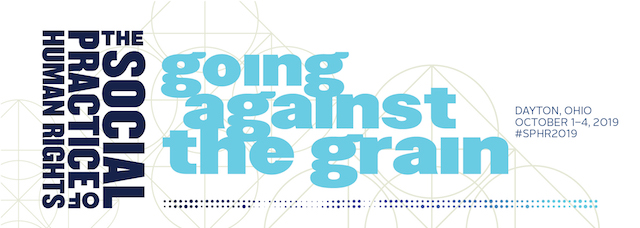Location
Reimagining and Decolonizing Human Rights
Start Date
10-2-2019 11:30 AM
End Date
10-2-2019 1:00 PM
Keywords
human rights, decolonization, sovereignty
Abstract
Despite its emancipatory potential, human rights remains locked in a form of epistemic coloniality that defers to Euro-American knowledge and reinforces anthropocentric exceptionalism. In order to employ human rights as a source of emancipation, human rights must itself be emancipated—it must be decolonized. Drawing on the notion of 'decoloniality' as a framework that advances radical possibilities by delinking from structural racism, patriarchy and class embedded in capitalism and Western modernity, a typology of human rights as sovereignty, disruption, and tactics is developed as a way of understanding human rights from the position of the colonized.
Author/Speaker Biographical Statement(s)
A. Kayum Ahmed is Division Director at the Open Society Foundations (OSF) in New York where he leads the Public Health Program's global portfolio on access to medicines and innovation. He also teaches a class on socio-economic rights at Columbia Law School. Before joining OSF, Kayum served as Chief Executive Officer of the South African Human Rights Commission from 2010 to 2015. During this period, he led a team of 178 colleagues to monitor, protect and promote human rights in South Africa, and oversaw the management of nearly 45,000 human rights cases. He holds a Ph.D. in education from Columbia University as well as various degrees in law from the universities of Oxford (MS.t), Cape Town (LL.B.), and Leiden (LL.M.). In addition, he has degrees in anthropology (M.A.) and theology (B.A. Hons).
Included in
Human Rights Law Commons, International Law Commons, Law and Philosophy Commons, Law and Politics Commons, Law and Race Commons
Decolonizing Human Rights: Sovereignty. Disruption. Tactics.
Reimagining and Decolonizing Human Rights
Despite its emancipatory potential, human rights remains locked in a form of epistemic coloniality that defers to Euro-American knowledge and reinforces anthropocentric exceptionalism. In order to employ human rights as a source of emancipation, human rights must itself be emancipated—it must be decolonized. Drawing on the notion of 'decoloniality' as a framework that advances radical possibilities by delinking from structural racism, patriarchy and class embedded in capitalism and Western modernity, a typology of human rights as sovereignty, disruption, and tactics is developed as a way of understanding human rights from the position of the colonized.



